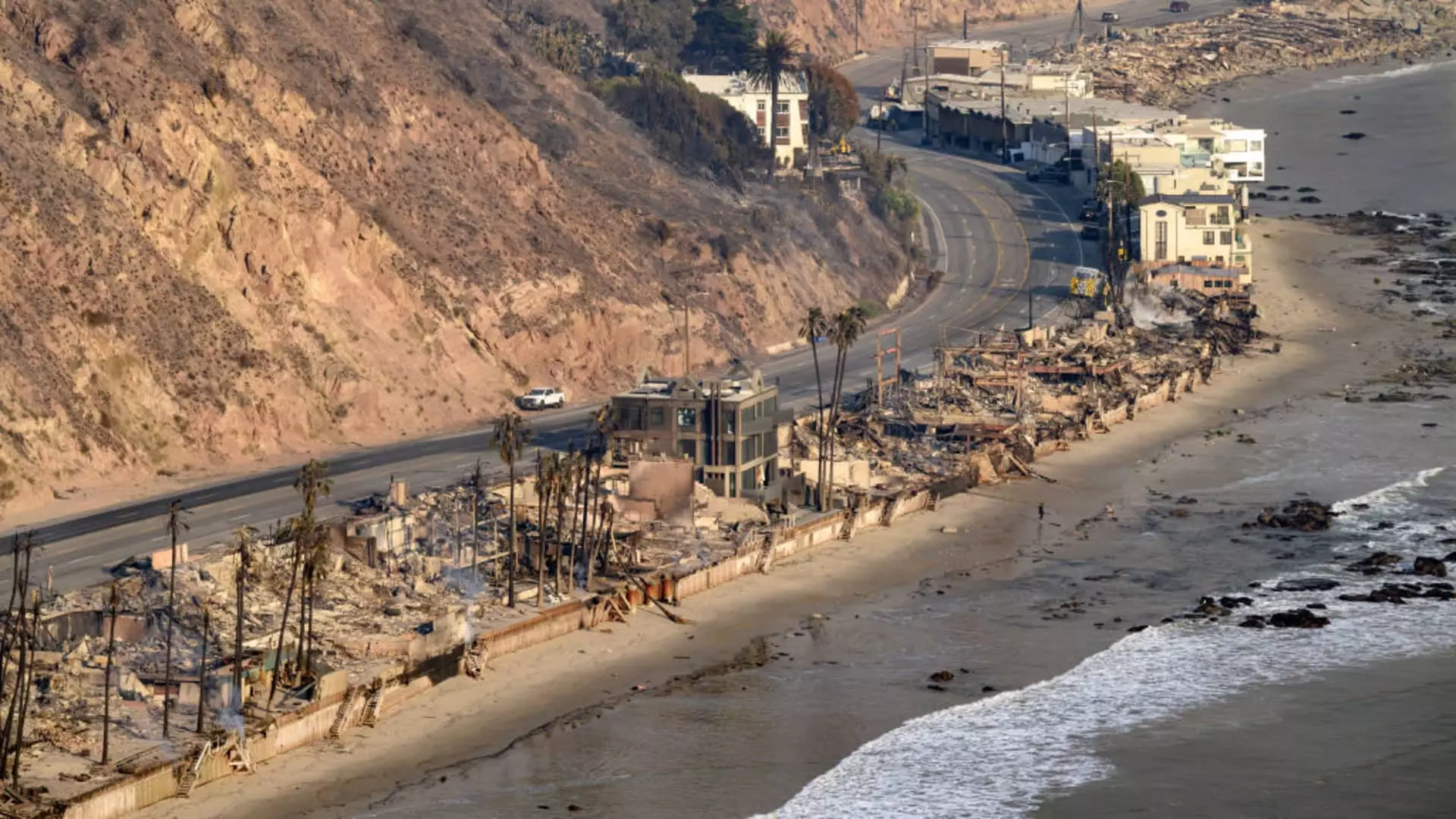The recent outbreak of wildfires in California has posed significant challenges for local residents and travelers alike. As flames ravaged landscapes, the impact rippled through the airline industry, forcing carriers to quickly adapt their policies to accommodate affected individuals. Major airlines, including American Airlines, United Airlines, and Southwest Airlines, have implemented travel waivers for those booked to or from Los Angeles airports, offering a crucial lifeline during this uncertain period.
The fires, primarily affecting the Los Angeles area, have resulted in widespread power outages and water shortages, further complicating an already dire situation. Approximately 10,000 homes and structures have been destroyed, leaving families displaced and in need of immediate assistance. Despite these challenges, airports like Los Angeles International Airport and John Wayne Airport have continued to operate, albeit under precarious circumstances. Flight-tracking services such as FlightAware indicate normal operations, yet the underlying threat of the wildfires creates a palpable tension for both airlines and their passengers.
The atmospheric conditions have not only disrupted daily life but have also prompted local authorities to issue boil-water advisories in areas like Pacific Palisades, compounding the community’s difficulties. Residents are urged to utilize bottled water, underscoring the necessity for contingency plans amid such disasters. Moreover, evacuation orders remain in effect in various parts of the county, highlighting the urgency of the situation and the need for ongoing monitoring by both local and national agencies.
Airlines Respond: Waivers and Flexibility
In response to the ongoing crisis, airlines have recognized the importance of flexibility in adjusting their travel policies. American Airlines, for instance, has allowed travelers to change their plans without incurring extra fees until January 20—a crucial window for those looking to reschedule flights. Southwest Airlines has echoed this sentiment by offering rebooking options within a two-week timeframe, while also providing the choice to fly into other Californian cities unaffected by the wildfires, such as Palm Springs and San Diego.
By waiving fees for flight changes, these airlines not only demonstrate their commitment to customer service but also acknowledge the potential economic impact faced by travelers during emergencies. As communities begin to recover from such disasters, it becomes increasingly important for airlines to remain adaptable and responsive to evolving circumstances.
Despite the operational adjustments made by various airlines, the wildfires have undeniably influenced consumer behavior. Delta Air Lines has noted a decline in flight sales to Los Angeles, a traditionally strong hub for both business and leisure travel. Glen Hauenstein, the airline’s president, indicated that while there hasn’t been a significant uptick in cancellations, the overall demand from this region has dipped due to fears associated with the wildfires.
However, Hauenstein remains optimistic, suggesting that a spike in demand often follows natural disasters, driven by the need for rebuilding and recovery. This phenomenon raises the question of how airlines can best position themselves to capitalize on the resurgence of travel interest once the immediate threat of the wildfires subsides. While the current hardships are undeniably challenging, they also offer a unique opportunity for the airline industry to reassess its strategies moving forward.
As Los Angeles faces the daunting task of recovering from the devastating wildfires, the resilience of its community becomes paramount. Individuals and families affected by the fires require not only immediate assistance but also long-term support systems to help rebuild their lives. In times of natural disaster, the critical role played by airlines in facilitating travel becomes amplified, as they provide an essential service to those needing to reconnect with loved ones or seek refuge elsewhere.
Ultimately, as the situation evolves and recovery efforts unfold, it is crucial for both local citizens and the airline industry to remain united in their purpose. The challenges that arise from such catastrophic events may seem insurmountable, but through collaboration, empathy, and adaptability, a brighter future can emerge from the ashes.

